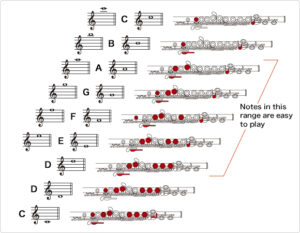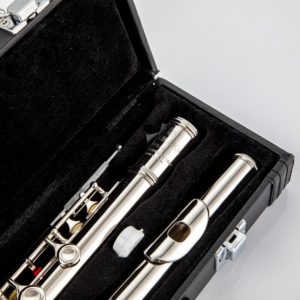Contents
- 1 Mastering the Flute: Tips and Techniques for Beginners
- 1.1 Benefits of Learning the Flute
- 1.2 Choosing the Right Flute for Beginners
- 1.3 Proper Flute Posture and Hand Placement
- 1.4 Basic Flute Playing Techniques
- 1.5 Breathing Exercises for Flute Players
- 1.6 Finger Exercises for Beginners
- 1.7 Reading Sheet Music and Understanding Musical Notation
- 1.8 Flute Maintenance and Care Tips
- 1.9 Finding a Flute Teacher or Joining a Flute Class
- 1.10 Recommended Flute Practice Routines for Beginners
- 1.11 Resources for Learning the Flute Online
- 1.12 Common Mistakes to Avoid When Learning the Flute
- 1.13 Mastering Advanced Flute Techniques
- 1.14 Conclusion: Developing Your Own Flute Playing Style
- 1.15 Different Types of Flute
Mastering the Flute: Tips and Techniques for Beginners

Embarking on a musical journey can be both exciting and daunting, especially when it comes to mastering a complex instrument like the flute. Whether you’re a complete beginner or have dabbled in playing the flute before, this guide is here to help you unlock your potential and take your skills to new heights.
In “Mastering the Flute: Tips and Techniques for Beginners,” we will delve into the world of flute playing, providing you with a comprehensive roadmap to develop your technique, improve your tone, and master the art of playing this beautiful instrument. From understanding the basics of flute anatomy to honing your breath control and exploring advanced techniques, this guide covers it all.
So, if you’re ready to embark on a musical adventure and unleash your inner flutist, let’s dive in and discover the secrets to mastering the flute!
Benefits of Learning the Flute
Learning to play the flute offers numerous benefits that extend beyond the joy of making music. Playing the flute can improve your concentration, memory, and cognitive skills. It can also enhance your respiratory system and lung capacity, promoting better breathing and overall physical well-being. Furthermore, playing the flute can be a great stress-reliever and boost your self-confidence. Whether you aspire to become a professional flutist or simply want to enjoy the pleasure of playing music, the flute is an instrument that can bring immense joy and fulfilment to your life.
Choosing the Right Flute for Beginners
When starting your flute journey, it is crucial to choose the right instrument that suits your needs and budget. There are various types of flutes available, including beginner, intermediate, and professional models. Beginners are generally advised to start with a student flute, which is designed to be more durable and affordable. It is also important to consider factors such as the flute’s material, key system, and tone quality. Visiting a reputable music store or consulting a flute teacher can help you make an informed decision and find the perfect flute to begin your musical journey.
Proper Flute Posture and Hand Placement

Establishing proper flute posture and hand placement is essential for developing good playing technique and preventing injuries. When holding the flute, ensure that your back is straight and your shoulders are relaxed. Hold the flute parallel to the ground, with your left hand supporting the flute’s weight and your right hand controlling the keys. Your fingers should be curved, and the pads of your fingertips should cover the holes completely. Maintaining a relaxed and comfortable posture will allow you to produce a clear and resonant sound while minimising tension and strain on your body.
Basic Flute Playing Techniques
Before diving into more advanced techniques, it is important to master the basic flute playing techniques. Start by learning how to produce a clear and steady sound by blowing across the mouthpiece while keeping your embouchure relaxed and centred. Experiment with different angles and airspeeds to find the optimal sound. Once you have achieved a consistent sound, practice playing different notes by covering and uncovering the flute’s keys. Pay attention to your finger placement and ensure that you are pressing the keys firmly but not too forcefully. Mastering these fundamental techniques will lay the foundation for more complex flute playing in the future.
Breathing Exercises for Flute Players
Breath control is a critical aspect of playing the flute. Proper breath support allows you to produce a vibrant sound while maintaining control over dynamics and phrasing. To develop your breath control, start with simple exercises such as long tones. Begin by taking a deep breath and exhaling slowly and evenly while playing a single note. Focus on maintaining a steady and controlled stream of air throughout the note. As you progress, incorporate exercises that involve different dynamics, articulations, and intervals to further enhance your breath control and flexibility.
Finger Exercises for Beginners

Developing dexterity and coordination in your fingers is essential for fluent and precise flute playing. Begin by practising simple finger exercises that involve playing scales, arpeggios, and basic melodies. Start at a comfortable pace and gradually increase the speed as you become more proficient. Additionally, incorporating finger strengthening exercises using a stress ball or finger exerciser can help build finger strength and enhance your control over the keys. Consistent practice of finger exercises will not only improve your technique but also enable you to navigate the flute more effortlessly.
Reading Sheet Music and Understanding Musical Notation
To become a proficient flute player, it is important to learn how to read sheet music and understand musical notation. Familiarise yourself with the staff, clefs, note values, and other musical symbols. Practice identifying notes on the staff and associating them with their corresponding fingerings on the flute. Start with simple melodies and gradually progress to more complex compositions. Developing your sight-reading skills will enable you to learn new pieces more efficiently and expand your repertoire.
Flute Maintenance and Care Tips
Proper maintenance and care are essential for keeping your flute in optimal condition and ensuring its longevity. After each practice session, clean the flute by wiping the keys, body, and head joint with a soft, lint-free cloth. Use a cleaning rod and cloth to remove any moisture or debris from the inside of the flute. Regularly oil the flute’s keys and rods to prevent them from sticking. Additionally, store the flute in a protective case when not in use to protect it from dust and damage. A well-maintained flute will not only produce better sound but also last for many years to come.

Finding a Flute Teacher or Joining a Flute Class
Seeking guidance from a qualified flute teacher can greatly accelerate your learning process and help you develop proper technique and musicality. A flute teacher can provide personalised instruction, offer feedback, and guide you through various exercises and repertoire. If private lessons are not feasible, consider joining a flute class or ensemble where you can learn from other flutists and receive group instruction. Engaging with fellow musicians and having access to regular feedback and guidance will inspire and motivate you to progress further in your flute journey.
Recommended Flute Practice Routines for Beginners
Establishing a consistent and effective practice routine is crucial for steady progress on the flute. Begin by setting specific goals for each practice session and allocating dedicated time for warm-up exercises, technique drills, repertoire practice, and sight-reading. Start with shorter practice sessions and gradually increase the duration as your stamina and focus improve. Remember to take regular breaks to prevent fatigue and maintain your enthusiasm. Consistency and regularity are key to mastering the flute, so aim for daily practice sessions, even if they are relatively short.
Resources for Learning the Flute Online
In addition to traditional lessons and classes, the internet offers a wealth of resources for learning the flute. Online tutorials, video lessons, and interactive platforms provide a convenient and flexible way to enhance your flute skills. Explore websites and platforms dedicated to flute playing, where you can find a vast library of sheet music, exercises, and instructional videos. Join online flute communities and forums to connect with other flutists, seek advice, and share your progress. Embrace the digital age and make the most of the resources available to supplement your flute learning journey.
Common Mistakes to Avoid When Learning the Flute
When learning any new skill, it is natural to make mistakes. However, being aware of common pitfalls can help you avoid unnecessary setbacks and frustration. One common mistake is neglecting proper posture and hand placement, which can lead to tension and poor technique. Another mistake is rushing through the fundamentals and jumping straight into advanced techniques. Mastering the basics is essential for building a solid foundation.
Additionally, practising without a clear goal or structure can hinder progress. Set specific objectives for each practice session and focus on targeted areas of improvement to maximise your practice time.
Mastering Advanced Flute Techniques
Once you have developed a strong foundation and mastered the basic techniques, you can begin exploring more advanced flute techniques. This includes techniques such as vibrato, double tonguing, flutter tonguing, and harmonics. Advanced techniques require additional practice and patience, as they often involve intricate fingerings, embouchure adjustments, and control over dynamics. Seek guidance from a flute teacher or advanced flutists to ensure you are practising these techniques correctly and efficiently. With dedication and perseverance, you will gradually master these advanced techniques and unlock new possibilities for musical expression.
Conclusion: Developing Your Own Flute Playing Style

As you progress on your flute journey and master various techniques, it is important to develop your own unique playing style. Experiment with different musical genres, explore improvisation, and find opportunities to perform and share your music. Embrace your individuality as a flutist and let your personality shine through your playing. Remember that mastering the flute is not just about technical proficiency, but also about expressing emotions, telling stories, and connecting with your audience. Enjoy the process, be open to learning, and never stop exploring the limitless possibilities that the flute has to offer.
In conclusion, mastering the flute requires dedication, patience, and a love for music. By following the tips and techniques outlined in this guide, you can develop a strong foundation, improve your technique, and unlock your full potential as a flutist. Whether you aspire to play professionally or simply want to enjoy the pleasure of playing music, the flute has the power to bring joy, fulfilment, and self-expression into your life. So, take a deep breath, pick up your flute, and embark on this beautiful musical journey. The world of flute playing awaits you!
